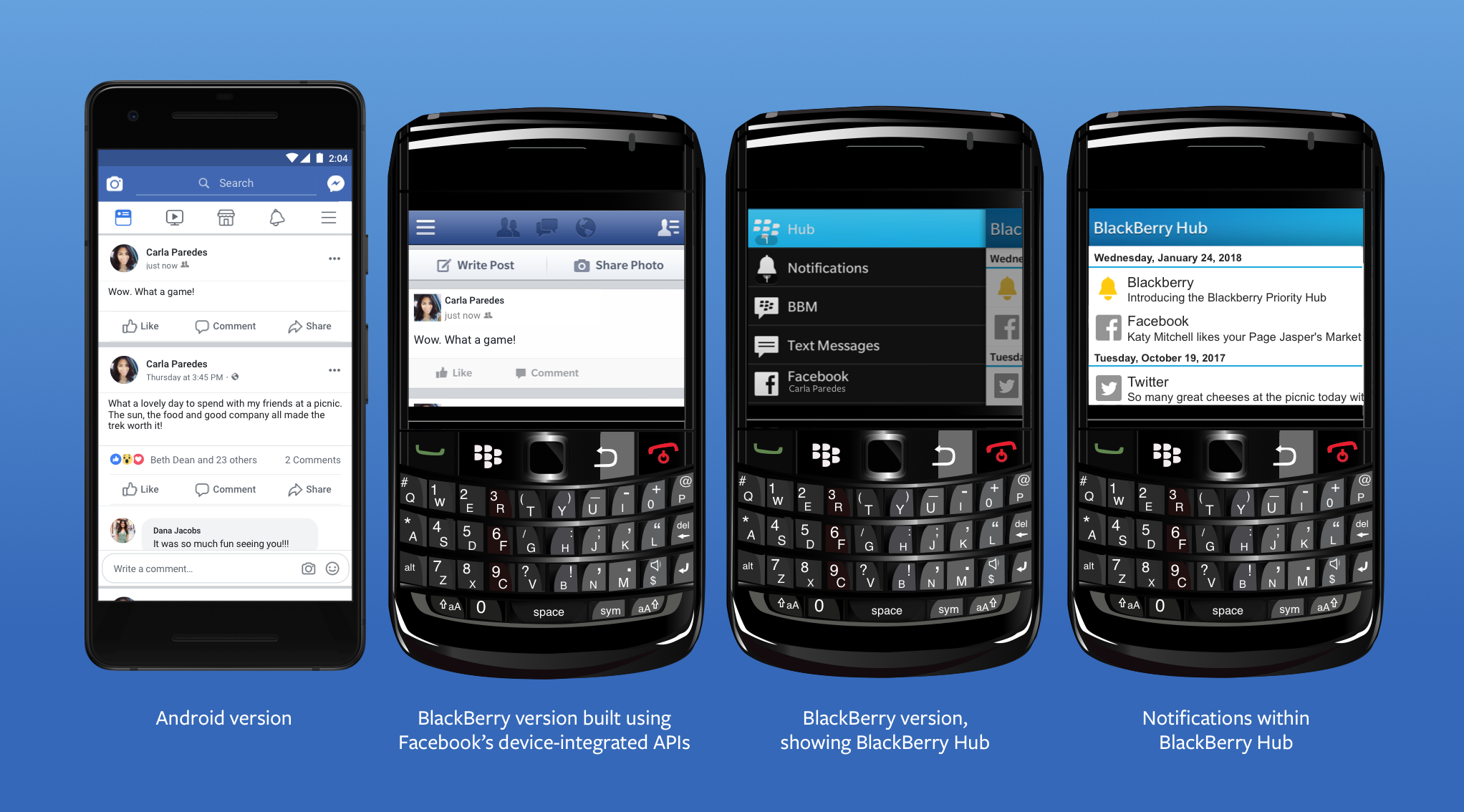Most recently, a small growth Mark Zuckerberg testified to the US Congress, sitting on his briefcase. He assured the congressmen that the users of the largest social network “complete control” over those to whom personal data are transmitted. But now it turns out that this is not the case. And it is quite possible to conclude that Zuckerberg
lied to Congress .
Such conclusions follow from the
results of the investigation , published yesterday in the
NY Times . The article describes the work of special APIs, which about ten years ago were integrated into devices from at least 60 manufacturers. With these companies, Facebook has entered into long-term agreements, many of which are still in effect.
According to the New York Times, Facebook acted incorrectly: more than 60 device manufacturers had privileged access to the data of Facebook users "without their explicit consent." Data transfer continued even after Facebook said it would no longer share such information with outsiders. Some device manufacturers may receive personal information not only of the users themselves, but also of their friends, although formally such data exchange is prohibited. “When Facebook closed the possibility of accessing data on user’s friends in 2015, Facebook freed these manufacturers from restrictions,” the article says.
If you make a squeeze out of the article, then from it is clear the following: Facebook did not consider (and does not consider) device manufacturers "third parties". Thus, when the company stated that it had ceased to transmit data to “third parties,” it did not mean mobile device manufacturers. Honestly, such an argument sounds rotten. But this is the only thing that Facebook can say now, because otherwise it turns out that the company lied and Zuckerberg personally lied to Congress.
Facebook posted an
official response in which it disagreed with the accusations because of the work of these specific APIs.
“In the early days of the mobile industry, the demand for Facebook was ahead of our ability to create product versions that worked on every phone or operating system. Now it is hard to remember, but then there were no app stores yet. Thus, companies such as Facebook, Google, Twitter and YouTube had to work directly with manufacturers of operating systems and devices so that people could get these products, explained Facebook in an official statement. “To overcome this gap, we created a set of device-integrated APIs that allowed companies to recreate a Facebook-like experience for their individual devices or operating systems. Over the past decade, about 60 companies have taken advantage of them - including many well-known companies such as Amazon, Apple, Blackberry, HTC, Microsoft, and Samsung. ”

That is, the essence of the work of the API is explained by “technical necessity”. From the point of view of Facebook, this is the simplest solution to a technical problem, and there is nothing reprehensible here. Moreover, Facebook was based
on user interests .
“All of these partnerships were built on a common interest — the desire of people to be able to use Facebook, regardless of their device or operating system,” the statement said. “Considering that these APIs allowed other companies to recreate the Facebook experience, we tightly controlled them from the very beginning. These partners have signed agreements that do not allow the use of Facebook user information for any other purpose than recreating Facebook-like events. Contrary to the claims of The New York Times, information of friends, like photos, was only available on devices when people made the decision to share their information with these friends. We are not aware of any abuses by these companies. ”
Facebook emphasizes that these privileged APIs "are very different from public APIs used by third-party developers, such as Alexander Kogan."
Here we are talking about the author of the application, who sold the data of the infamous company Cambridge Analytica, which collaborated with Donald Trump in the 2016 presidential election. As it became known recently, this company used the profiling of American voters according to the most detailed data from Facebook profiles.
“Now that iOS and Android are so popular, fewer and fewer people rely on these APIs to create an individual Facebook experience,” the company writes. - Therefore, in April, we announced that we are closing access to them. We have already completed 22 such partnerships. As always, we work closely with our partners to provide alternative ways for people to continue using Facebook. ”
In other words, Facebook suggests not to mix flies with cutlets and not to drag another 60+ manufacturers of mobile devices to a scandalous leak of personal data.